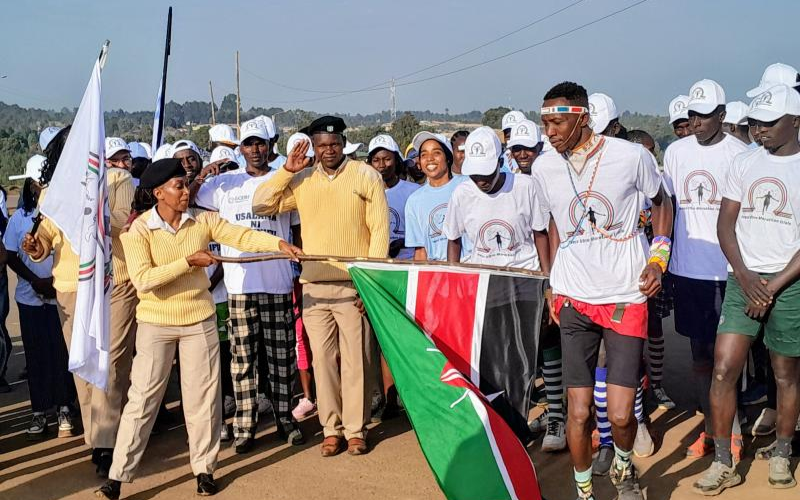Recently, I crisscrossed several counties — from Kajiado to Machakos, Nairobi to Eldoret, West Pokot to Isiolo — each stop offering fresh experiences, new faces, and stories pulsing with life.
Countryside road trips are my favourite kind of escape. They allow me to soak in diverse landscapes, engage with different cultures, and build lasting memories.
But nothing could have prepared me for the emotional and symbolic richness of my most recent journey across eight counties, six communities and the heart of the 2025 Peace Ultra Marathon Isiolo (PUMI).
From pounding hooves in the Maasai Mara to pounding hearts in the dust and heat of Isiolo, this was more than a road trip. It was part travelogue, part human-interest story, and part personal reflection — a return to an event I’ve been part of since its inception four years ago.
After landing at Jomo Kenyatta International Airport from West Pokot, I quickly hit the Nairobi–Nyeri–Nanyuki highway. By evening, I was in Nanyuki, soaking in its colonial charm and the cross-cultural buzz of the town.
I sampled street food, chatted with vendors and boda boda riders, and absorbed the rhythm of a town that refuses to be defined by its past.
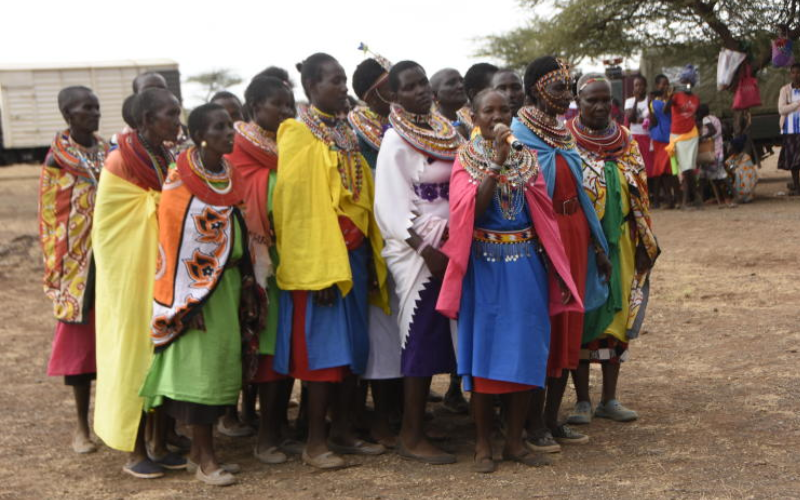
The next morning, I travelled to Timau, a chilly town nestled at the foot of Mt Kenya.
I was welcomed by Eric Muthomi, Programme Manager at Regional Pastoralists Peace Link (RPPL), the driving force behind PUMI.
The stage for the two-day event was already set — a vibrant campsite alive with anticipation.
As dusk fell, the base camp transformed. Golden-yellow flames danced against the silhouette of Mt Kenya as night bloomed into a cultural extravaganza.
Youth from the Maa, Somali, Borana, Samburu, Turkana, Rendile and Meru communities shared dances, songs and laughter. But beneath the music lay a deeper purpose: reconciliation.
Halima Sadia, RPPL’s Project Coordinator, explained the event’s origins. For years, these communities have clashed over grazing lands, water access, and livestock raids. PUMI fosters unity and dialogue, helping former rivals see each other as allies.
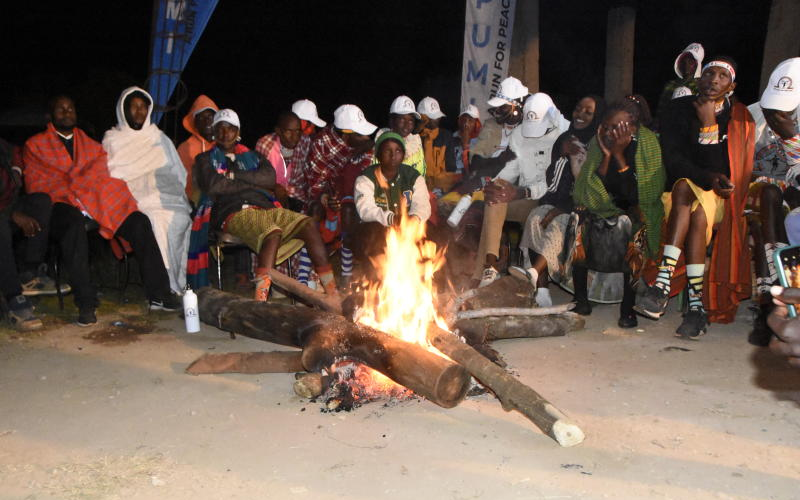
“When you run alongside someone you once feared, it changes how you see them,” she said.
That night, a symbolic goat-slaughtering ceremony was conducted under the guidance of Maasai morans.
Youth representatives and elders from each community led powerful intergenerational conversations, warning against cattle rustling, gender-based violence, and female genital mutilation, while advocating for peaceful coexistence.
Despite the cold, I stayed up past 1am, captivated by the performances and inspired by the energy. Conversations by the bonfire touched on climate change, gender roles, and how music can be a tool for healing.
The next morning, the main event began — a 50-kilometre Peace Ultra Marathon through Meru, Laikipia and Isiolo.
Before dawn, runners warmed up while others participated in a symbolic tree-planting activity. More than an environmental gesture, the planting symbolized new beginnings and resilience — much like the communities themselves.
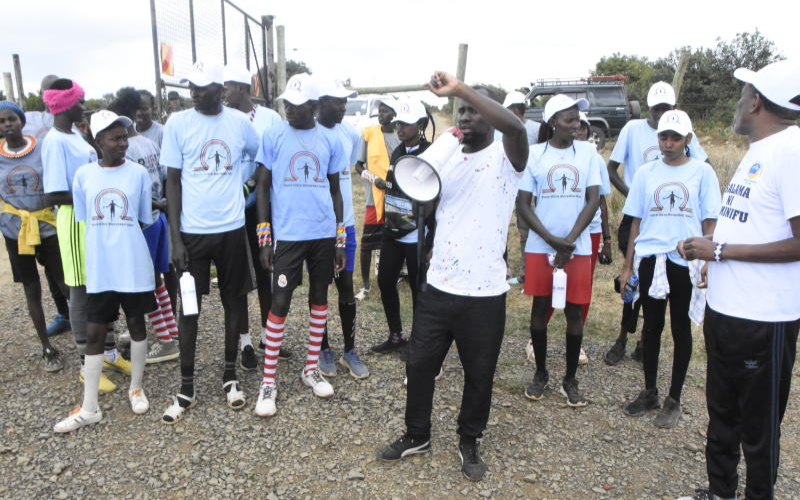
Though I’m no ultra-marathoner, I managed to walk six kilometres alongside ordinary yet determined participants.
When I eventually hopped into a support vehicle, I joined a hilarious driver and three Red Cross youth who became my roadside educators in first aid, security and emergency response.
The race wound through Borana, Ilmamusi, Ilngwesi and Leparua — all stunning conservancies — before concluding in Isiolo.
The trail was rough and the sun unforgiving, but the atmosphere was electric. We paused frequently to chat with locals, share stories, and soak in the wild, untouched porini (wilderness). One especially moving conversation was with Wilson Kabon from Loruko in Burat Ward. “I have lost relatives and my home to conflict,” he said. “Seeing people from different communities run, eat, and talk together gives me hope.”
Selina Naishuru from Samburu, participating in her second PUMI, was also beaming.“Running through places once known for conflict, now filled with song and laughter, was powerful,” she said.
Along the route, I met a teacher from Isiolo who had brought five students to watch the marathon.
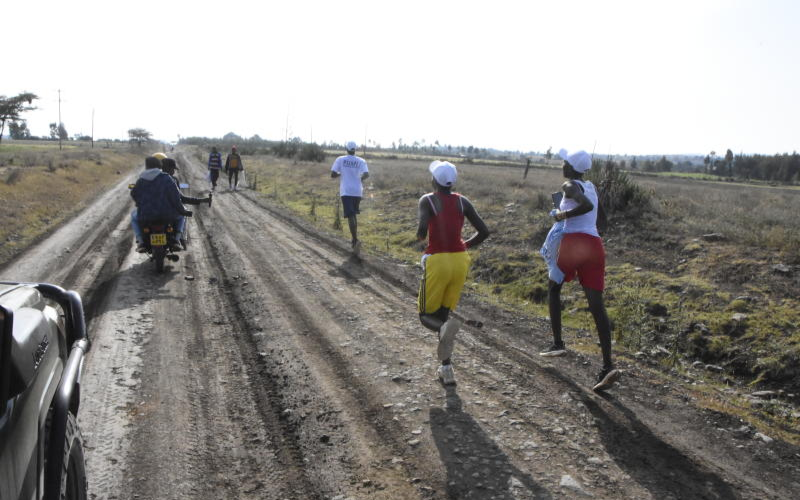
“They are the future peacemakers,” he said. “If they grow up seeing dialogue and unity, they will lead us differently.”
Few runners reached the finish line, but every participant was a winner. Certificates were handed out and the message was clear: peace had been passed on and unity reaffirmed. For the runners, this wasn’t just a competition — it was a commitment. PUMI 2025 was supported by a consortium comprising made up of IMPACT Kenya, Children Peace Initiative, Global Community Engagement & Resilience Fund, Rise Network, Merti Integrated Development Programme, Frontier Counties Development Council and the PARAAN Alliance, and organised by RPPL.
Like the previous editions, this event gave me more than just a story. It gave me the chance to interact with diverse communities, taught me lessons in dialogue, and rekindled my hope.
I came seeking adventure but left with a deeper appreciation for the endurance of the human spirit — and the extraordinary determination of ordinary people to shape peace.
My greatest reward? The new friendships, the renewed purpose, and one more unforgettable chapter in my travel memoirs.
Photos by Jayne Rose Gacheri


